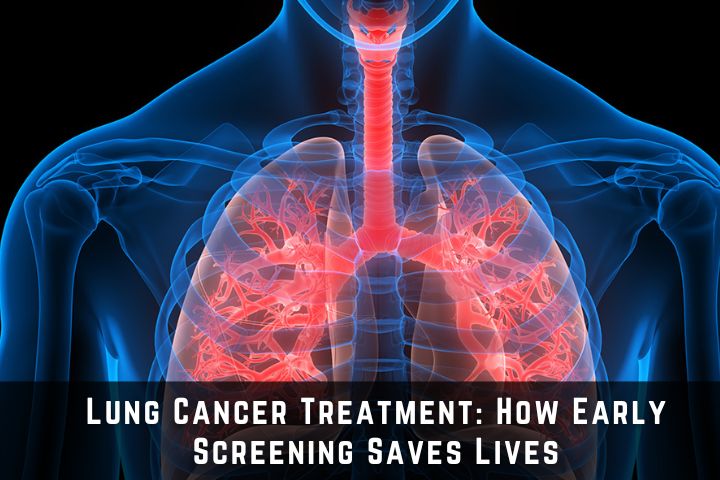Lung Cancer Treatment: How Early Screening Saves Lives
Lung cancer is one of the most common and life-threatening cancers globally, affecting millions every year. Despite its seriousness, early detection has proven to be a game changer in improving survival rates and treatment outcomes. With advancements in screening technologies, medical professionals can now identify lung cancer at its earliest stages—before symptoms become evident—giving patients the best possible chance for recovery. Understanding the importance of screening, the available treatments, and lifestyle adjustments can make a significant difference in saving lives.
The Importance of Early Detection
Lung cancer often develops silently, showing little to no symptoms until it reaches an advanced stage. Common signs like persistent cough, chest pain, or shortness of breath usually appear much later, making early diagnosis challenging. This is why screening is so crucial—especially for those at higher risk, such as smokers, former smokers, or individuals exposed to air pollution or asbestos.
Low-Dose Computed Tomography (LDCT) has emerged as one of the most effective screening tools for detecting lung cancer early. Unlike regular X-rays, LDCT provides a detailed image of the lungs, allowing doctors to spot small nodules or abnormalities that could be cancerous. Detecting lung cancer at an early stage significantly improves the chances of successful treatment, as the disease is often localized and easier to manage.
Regular screening doesn’t just save lives; it also allows for less invasive treatment options. When lung cancer is caught early, patients may only require surgery or localized therapy instead of extensive chemotherapy or radiation. Hence, spreading awareness about the benefits of early screening can help reduce lung cancer mortality rates worldwide.
Advanced Treatment Options for Lung Cancer
Modern medicine has transformed lung cancer treatment, offering more precise and personalized approaches than ever before. The right treatment depends on factors such as the cancer’s type, stage, and genetic profile. Some of the most common and effective treatment methods include surgery, chemotherapy, radiation therapy, targeted therapy, and immunotherapy.
Surgery is usually recommended for early-stage lung cancer, where removing the tumor can often lead to complete recovery. Chemotherapy and radiation therapy are used to destroy cancer cells that might have spread beyond the lungs. However, recent advances have brought new hope through targeted therapies and immunotherapy, which are designed to attack specific cancer cells while sparing healthy tissue.
Targeted therapy works by identifying and blocking the genetic mutations that allow cancer cells to grow uncontrollably. Immunotherapy, on the other hand, strengthens the body’s immune system to recognize and destroy cancer cells naturally. These modern techniques not only improve survival rates but also enhance the patient’s quality of life by reducing side effects and allowing faster recovery.
The focus today is on personalized lung cancer treatment—an approach that tailors therapies to each patient’s unique condition. This precision medicine model ensures that every individual receives the most effective treatment plan based on their body’s specific needs.
Lifestyle, Support, and Recovery
While medical treatments are essential, lifestyle choices and emotional support play a critical role in lung cancer recovery. Quitting smoking is the most significant step one can take to prevent lung cancer or improve outcomes after diagnosis. Maintaining a balanced diet rich in antioxidants, engaging in light physical activity, and managing stress can all strengthen the body during treatment.
Emotional and mental well-being also matter deeply. Support groups, counseling, and family involvement can make a tremendous difference in helping patients cope with the stress of diagnosis and treatment. Encouraging patients to stay hopeful and informed about their condition empowers them to participate actively in their recovery journey.
Moreover, regular follow-up appointments and scans are vital even after successful treatment to ensure there are no signs of recurrence. Early intervention, combined with a proactive lifestyle, can dramatically improve long-term survival and overall health.
Conclusion
Lung cancer remains a major global health concern, but early detection and modern treatment methods have brought new optimism to patients and families. With awareness, timely screening, and advanced therapies, lung cancer is now more manageable than ever before.
Dr AV Cancer Institute provides the best services regarding this, offering state-of-the-art screening facilities, advanced cancer treatments, and compassionate care to ensure every patient receives the best possible outcome in their fight against lung cancer.

